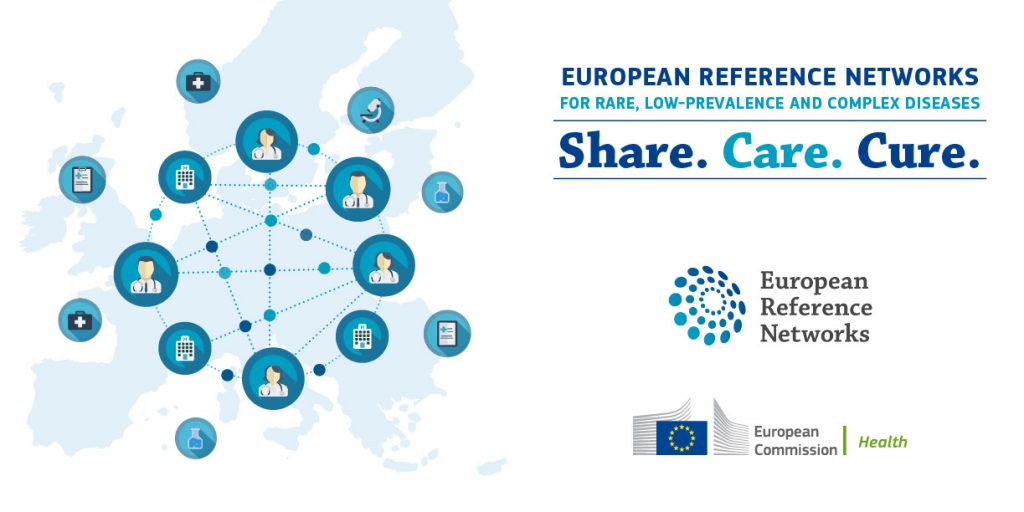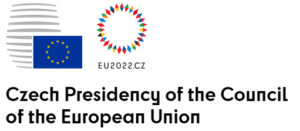1. EpiCARE HCP membership / application criteria
The European Commission will launch in the coming weeks the first call for new members to join existing 24 ERNs, following the adoption of the Commission Implementing Decision (EU) 2019/1269 of 26 July 2019 amending Decision 2014/287/EU.
The European Reference Network for rare and complex epilepsies ERN EpiCARE is an already established network of Health Care Providers (HCP). It is composed of 28 full member HCPs involving 13 EU countries (5 full members in Italy; 4 full members in the UK; 3 full members in France, Portugal and Spain; 2 full members in the Czech Republic and in Germany; and one full member in Belgium, Finland, The Netherlands; Poland; Romania and Sweden).
The EU Commission also authorized the designation of Affiliated Partners, expected to a establish a link to the Networks for those countries which do not have a member in a specific ERN. The ERN EpiCARE recently received a number of candidacies and evaluation of the submitted files is in progress. Affiliated Partners are not considered members of the Networks.
Full membership implies:
- A recognized level of expertise in rare and complex diseases that require highly specialized healthcare;
- Availability of medical staff to provide expertise to other centres at a EU level (cross-border advice on the most appropriate diagnosis and the best treatment);
- Contribution to advances in the field of rare diseases; Collaborative research; Generation of knowledge and sharing of learnings; Publication in peer reviewed scientific journals;
- Regular contribution to patient association activities;
HCPs, full members of an ERN are not funded by the Commission
Full members of the ERN EpiCARE have to fulfil a number of pre-established general criteria and specific requirements, summarized below.
General criteria applied by the ERN EpiCARE
- HCPs applying for full membership are expected to actively contribute to the missions of the ERN EpiCARE. These include:
- Availability of the medical staff to provide expertise at CPMS Case discussions on a regular basis
- Leadership and/or contribution to research projects and/or peer reviewed publications;
- Active contribution to the ERN EpiCARE Working Packages
- Contribution to educational activities of the ERN EpiCARE network (production of educational webinars; organization of or lecturing at scientific meetings on rare & complex epilepsies; etc.)
- Regular completing the EpiCARE Registry (see set of ERN indicators)
- A structured transition children-adult program
- National endorsement, with HCP recognition as center of expertise for rare/complex epilepsies, being able to cover the full range of complex/rare epilepsies (integrated diagnostic approach). HCP’s do not necessarily offer care in all specific domains, provided that an established written collaboration exists with other centers of competence (not necessarily ERN centers) that cover missing areas of expertise.
- Establishing national networks of care is strongly recommended.
Consequently, the ERN EpiCARE complies with the proposal of the ERN coordinators for a maximum nr. of full member HCP’s per country on a population basis: ≤ 10×106 = 1 center, ≥ 10 and ≤ 20×106 = 2 centers etc. - For each HCP (or for the established collaboration of the HCP with collaborating centers):
– a minimum number of patients (see below) should be met for each domain of care offered
– the availability of staff, tests, therapies, facilities (see below) is required - in case of pediatric epilepsy surgery: HCP complies with recent ILAE criteria (level I or II centers; publication in process)
- HCP activities have had demonstrable societal and/or scientific impact (e.g.: publications, guidelines, dissertations, teaching, societal recognition [media coverage, prizes], editorial boards, scientific committees, policymaking committees etc.)
Specific requirements applied by the ERN EpiCARE
Main thematic groups of epilepsies: genetic, structural, infectious, immune, surgically treatable, syndromic, metabolic, neonatal seizures, status epilepticus
Key diagnostic tests available:
For all epilepsies: regular access to 24h VEEG (3-4d) monitoring, 3T MRI (+anesthesia),
neuropsychology and/or neurodevelopment clinic; genetic counselling;
For surgical epilepsies: high-resolution MRI, high-field (at least 3T) MRI, MRI postprocessing, PET, SPECT, MEG/CSI, neuropathology, invasive monitoring, resective surgery (see criteria for level I or II centers in children);
For other epilepsies: microbiology, NGS, specialist neurobiochemistry and immunology lab, neonatal cVEEG
Key treatments: registries; personalized treatment; facilities to contribute to clinical trials; epilepsy surgery program; ketogenic diet program; 2x/month multidisciplinary surgical discussions, dietary intervention, immunomodulatory treatment, chemotherapy, plasma exchange, clinical neonatal expertise, novel agents in refractory status
Staff: adult and/or pediatric epileptologist/neurophysiologists, neonatologist, geneticist, neuroradiologist with expertise in epilepsy, neuropsychologist, nuclear med physician, epilepsy neurosurgeon, neuropsychiatrist, ophthalmologist, biochemist, dietician, metabolic clinician
Minimum thresholds that HCPs meet to contain competence and expertise:
| Main thematic groups | Patients/yr | New patients/yr | Procedures/yr |
|---|---|---|---|
| Genetic epilepsies | 150 | 40 | |
| Structural epilepsies | 150 | 40 | |
| Infectious epilepsies | 25 | 5 | |
| Immune epilepsies | 25 | 5 | |
| Surgically treatable epilepsies | 50 | 45 | 20 resections; 10 invasive monitoring procedures |
| Syndromic epilepsies other | 50 | 25 | |
| Metabolic epilepsies | 25 | 5 | |
| Neonatal seizures | 10 | 10 | |
| Status epilepticus | 10 | 10 | |
| General activity | 200 VEEG monitorings; 200 MRIs |
2. EpiCARE HCP performance / monitoring indicators
Each HCP, full member or affiliated partner of the ERN EpiCARE, regularly reports to the Steering Committee all what is requested for yearly reporting to EC
Generic indicators (for each ERN)
- Number of new patients (within EpiCARE scope) referred to HCP
- Number of formal educational activities (i.e. those accruing higher educational credits) organized by HCP (specify)
- Number of clinical trials or observational prospective studies in which the HCP participates (specify)
- Number of accepted peer-reviewed publications in scientific journals (within EpiCARE scope)
- Number of guidelines the HCP has produced/participated in
- Number of congresses/meetings at which EpiCARE activities/results were presented (specify)
- Level of patient satisfaction (to be developed): standardized score forms; provide number and average score
- HCP compliance to clinical guidelines (to be developed)
Additional EpiCARE-specific indicators
- Number of patients diagnosed/treated per domain (see p. 1)
- Proportion of patients with rare/complex epilepsy receiving a specific aetiological diagnosis (not only in terms of ILAE aetiology category)
- Average time between multidisciplinary team decision to perform epilepsy surgery and the actual procedure (surgical waiting-list)
- Report on annual collaborations with patient associations (participation at patient meetings; contribution to Medical Boards; etc.)
You can download the EpiCARE ERN position paper here




